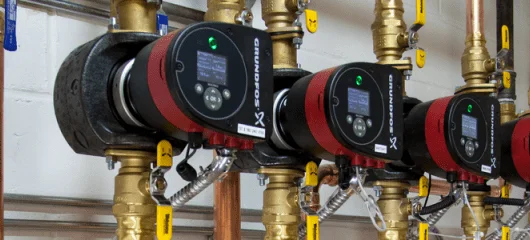A small amount of boiling (in a solar collector that is stagnating) won’t immediately damage the glycol fluid itself, but if a formulated glycol-based heat transfer fluid (HTF) is subjected to boiling temperatures then the ensuing vaporization that occurs will necessarily cause many of the additives (corrosion inhibitors, pH stabilizers, anti-scaling additives) which are non-volatile to precipitate and form deposits on heat transfer surfaces (collector tube walls) or elsewhere in the system. Prolonged or extended boiling will ultimately lead to excessive amounts of solids coming out of solution which reduces the effective concentration of additives remaining in the HTF. As discussed during the June 25, 2015 Coffee with Caleffi webinar, a glycol based HTF which has insufficient additives will thermally degrade faster and cause increased corrosion problems for your system; i.e. it can cause significant damage in a relatively short period of time.
So the short answer is steam-back systems have greater potential to shorten the expected lifetime of properly formulated glycol based HTF because vaporization removes additives from the fluid.
A very high quality and durable HTF, Caleffi SolarHD pre-mixed 50% high temperature, non-toxic glycol is specially formulated for use in solar applications and is NSF listed.






